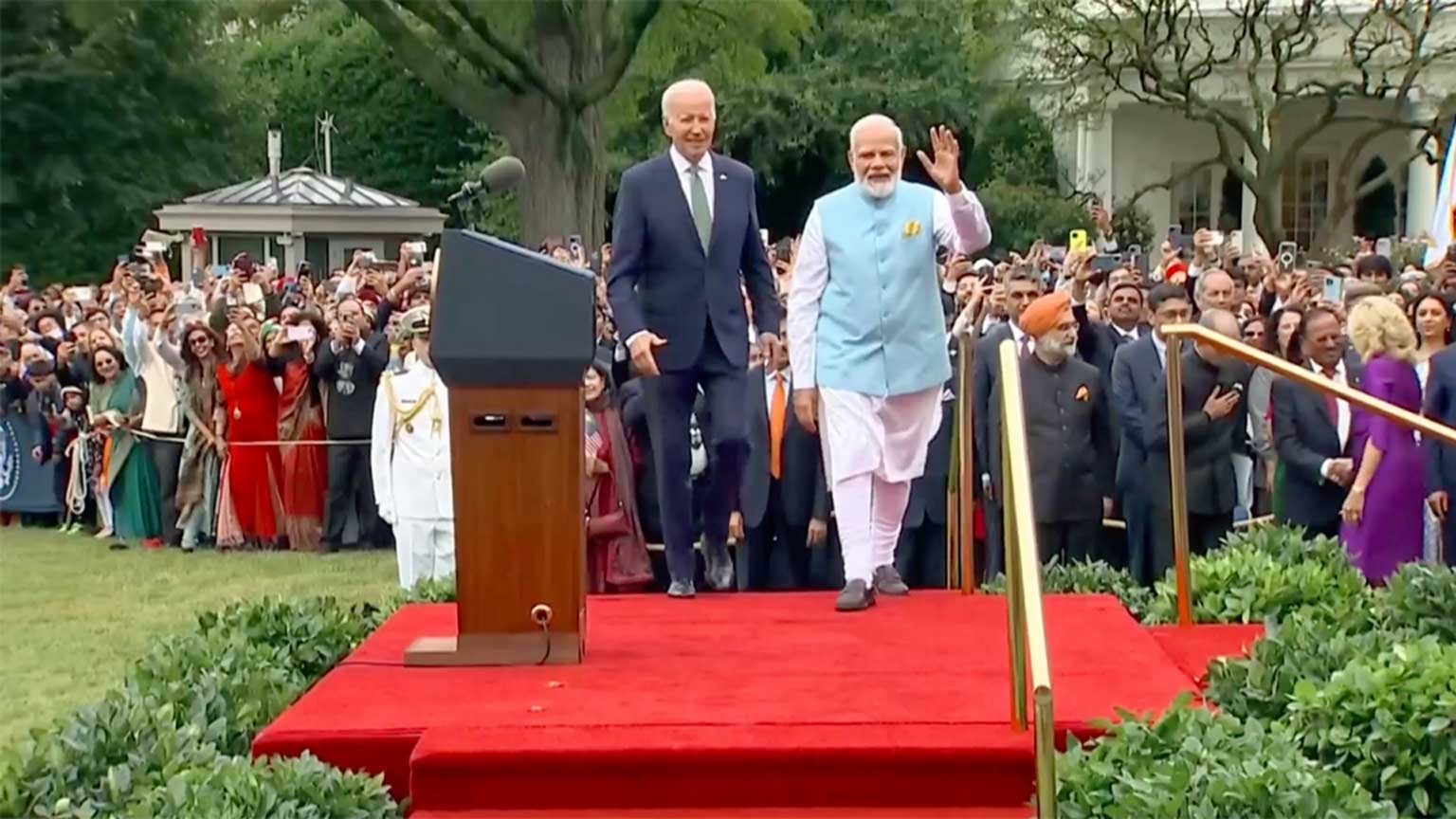Biden and Modi agreed to co-produce US-developed fighter jet engines in India. They also agreed to allow the repair and maintenance of US Navy ships at an Indian shipyard, and that India will purchase US-made drones.
Biden said the two leaders are demonstrating "how India and the United States are collaborating on nearly every human endeavor and delivering progress across the board."
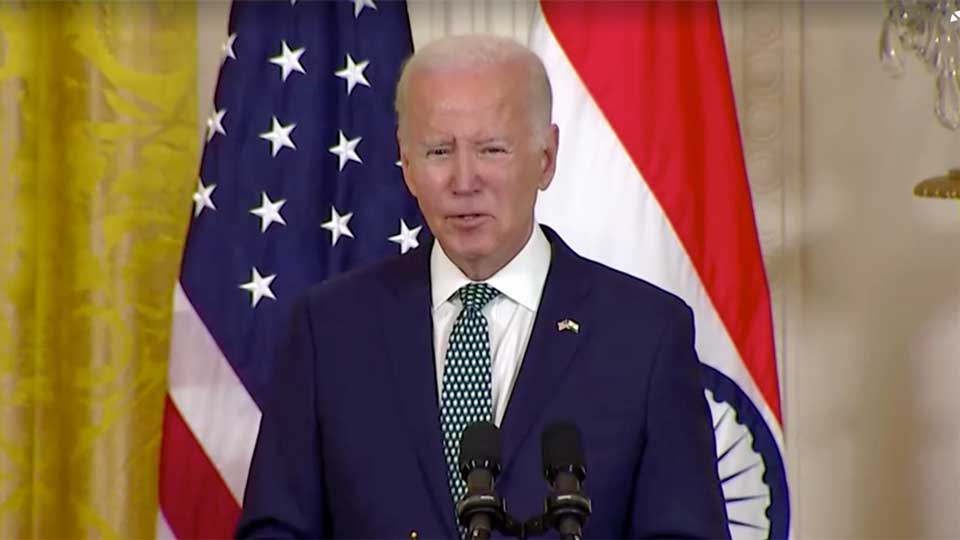
Modi said their bilateral ties have moved away from the old "buyer-seller relationship" to one involving technology transfer, co-development and co-production. He added that the latest agreement will give the countries' defense cooperation a "new character."
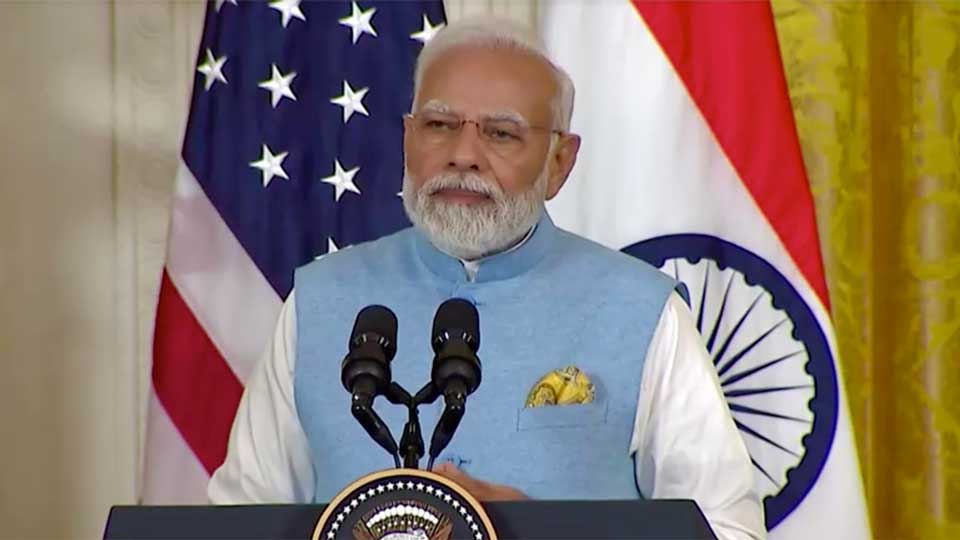
Stronger defense ties a key goal
Prior to the meeting, Indian Foreign Secretary Vinay Kwatra told reporters that bilateral defense cooperation is an important theme of Modi's visit to the US.
On June 5, US Defense Secretary Lloyd Austin held talks with Indian Defense Minister Rajnath Singh in New Delhi. The two agreed that their countries will step up defense cooperation in several fields, such as the joint development of new technologies and joint production.
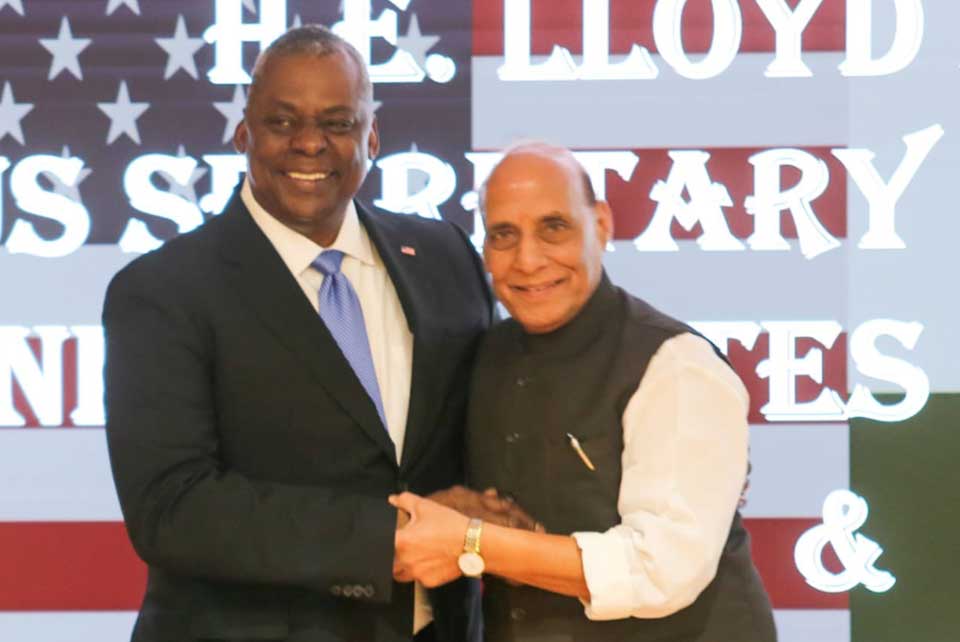
There are tensions between India and neighboring China over their shared border, and India is said to be behind in military power. The country has heavily relied on Russia for its weapons, and the modernization and expansion of India's defense capabilities are urgent issues.
But Russia's war against Ukraine has led to delays in the supply of weapons to India. There was also an incident on May 8 when an Indian former-Soviet fighter jet MiG-21, which local media have mocked as a "flying coffin," crashed and killed three people on the ground.
The Modi administration aims to promote the transfer of technology with Europe and the US, as well as the domestic production of weapons to break away from the country's dependence on imports.
An effort to counterbalance China
As China becomes increasingly assertive, the Quad leaders of Japan, US, India and Australia issued a joint statement on May 20, saying they strongly oppose destabilization or unilateral actions that try to change the status quo by force or coercion.
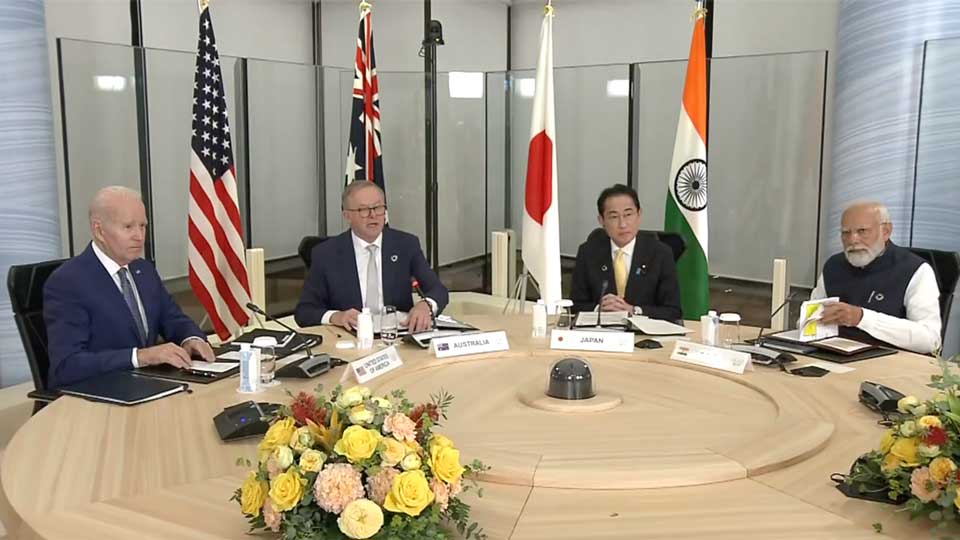
Modi then visited Papua New Guinea in the South Pacific for the first time and joined a meeting with the leaders of 14 island nations. He made it clear that he intends to actively engage not only in the Indian Ocean but also in the South Pacific, where China is increasing its influence. He said that India supports a free, open and inclusive Indo-Pacific, adding that it respects the sovereignty and integrity of all countries.
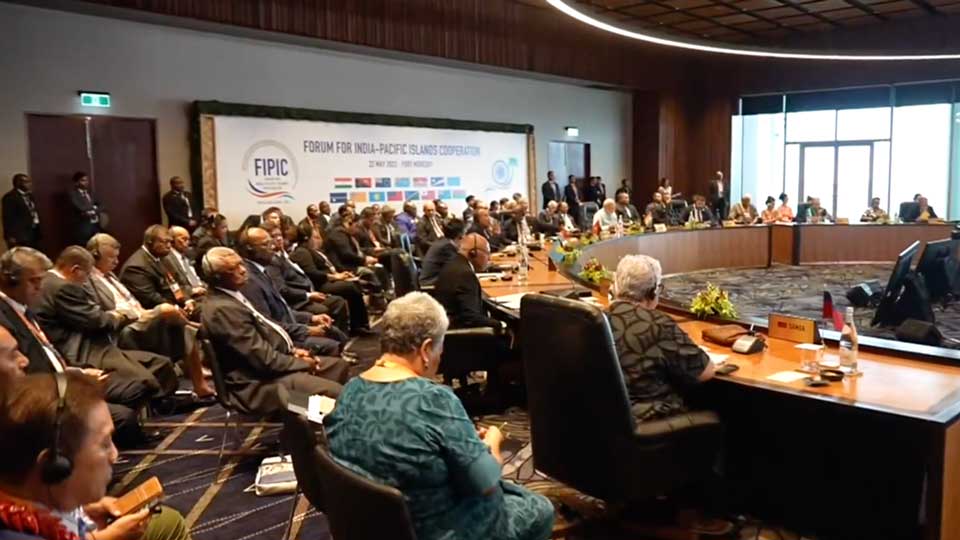
India also wants support from the US for its bid to become a permanent member of the UN Security Council, which it has long pursued.
India has a population of more than 1.4 billion, and is soon expected to surpass China and become the world's most populous country. Its gross domestic product ranked fifth in the world in 2021, and the country takes pride in being a major power in Asia. Yet observers say the country has not held an equivalent position or status in the international community.
It is thought that India sees cooperation with the US as essential for it to truly join the ranks of major powers.
US believes India can help counter China
The Biden administration invited Modi as a state guest, the third leader to receive such treatment following France and South Korea. It is the first time for the leader of a country that is not a US ally to be invited as a state guest.
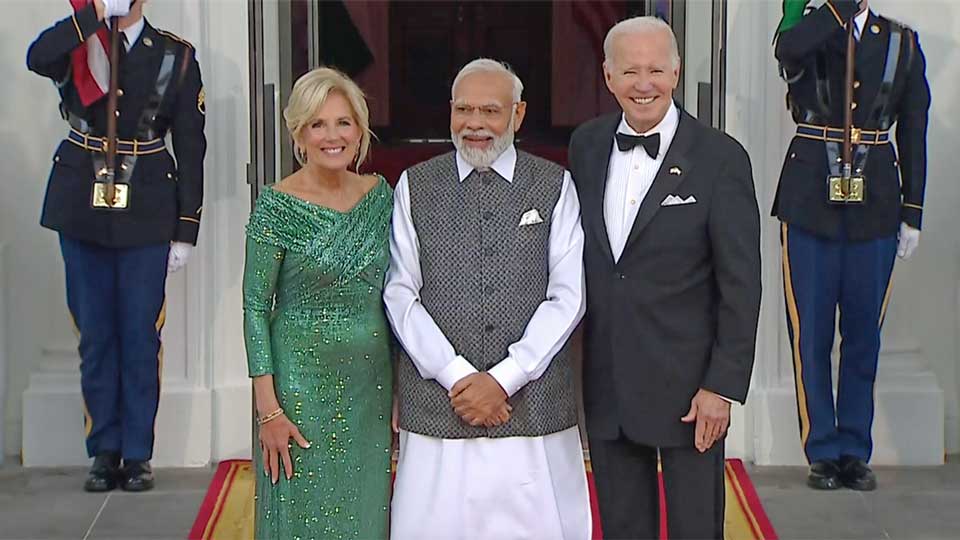
Meanwhile, more than 70 US congressional lawmakers from the Democratic Party sent a letter to Biden ahead of the summit, saying that religious persecution against minority groups is increasing in India, and there is growing concern about human rights in the country.
The Biden administration has made the promotion of democracy and human rights a pillar of its foreign policy.
Asked by reporters at a joint news conference after the meeting about his view on human rights in India, Biden said "we're straightforward with each other and we respect each other."
Modi said discrimination is unacceptable regardless of caste or religion, and denied allegations of discrimination and persecution.
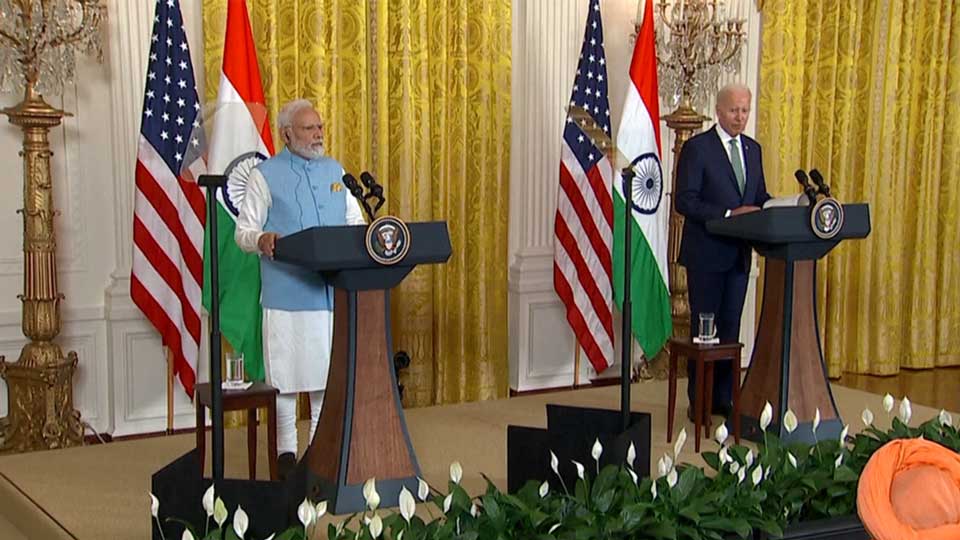
The summit shows that the two countries need to strengthen ties amid China's growing influence.
